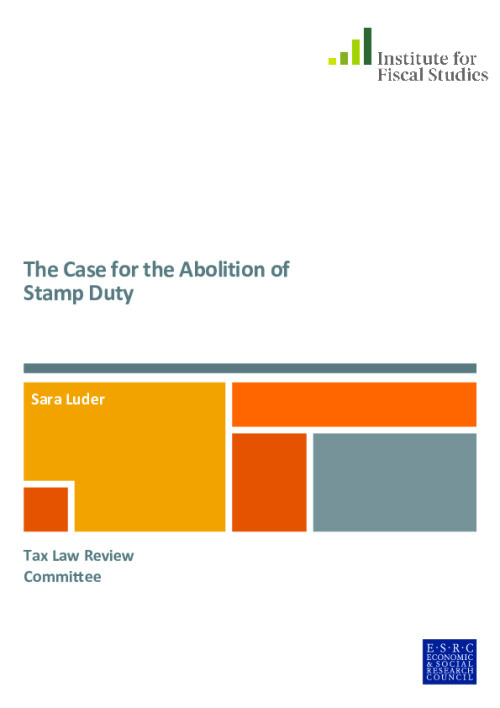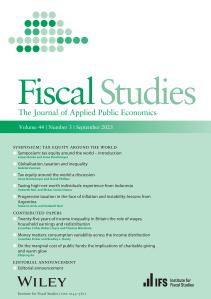Downloads

r123.pdf
PDF | 507.51 KB
This paper:
- describes how the economic reach of stamp duty is in practice very limited;
- explains why it nevertheless causes a range of problems;
- shows how the scope of SDRT could be expanded to cover the transactions in relation to which stamp duty currently raises revenue for the Exchequer;
- argues that stamp duty can and should on that basis be abolished; and
- identifies the key benefits that this would have for practitioners, taxpayers and the Exchequer.
This paper does not suggest that the existing tax yield from UK stamp taxes on transfers of securities be in any way reduced. It merely proposes a means of streamlining the way in which that tax is collected.
Authors

Sara Luder
Report details
- DOI
- 10.1920/re.ifs.2016.0123
- ISBN
- 978-1-911102-28-1
- Publisher
- The IFS
Suggested citation
Luder, S. (2016). The case for the abolition of stamp duty. London: The IFS. Available at: https://ifs.org.uk/publications/case-abolition-stamp-duty (accessed: 28 April 2024).
More from IFS
Understand this issue

Spring Budget 2024: What you need to know
podcast
IFS reaction to the Chancellor's Spring Budget.
7 March 2024

Spring Budget 2024: the Chancellor’s options
event
27 February 2024 at 10:00
At this online event, IFS researchers outlined some of the constraints facing the Chancellor ahead of the Spring Budget.

The £600 billion problem awaiting the next government
podcast
We speak to David Gauke and Giles Wilkes, two experts who have been at the heart of the spending review process.
25 April 2024
Policy analysis

Spring Budget 2024
collection
All our analysis of the Spring Budget 2024. Includes research, comment, explainers and more.
6 March 2024

Reforming the taxation of non-doms: policy options and uncertainties
comment
This comment summarises what is known about non-doms, the options for reforming how they are taxed and potential revenue implications.
4 March 2024

Oil and gas make Scotland’s underlying public finances particularly volatile and uncertain
comment
A fallback in oil and gas prices has hit Scotland’s underlying public finance position this year.
27 March 2024
Academic research

Intertemporal income shifting and the taxation of business owner-managers
journal article
We show that responses of UK company owner-managers to personal taxes are due to intertemporal income shifting and not reductions in business activity
24 January 2024

Insurance, redistribution, and the inequality of lifetime income
working paper
This paper studies how the tax-and-transfer system mitigates income inequalities over the lifetime, which can lead to disparities in living standards.
2 November 2023

Symposium: tax equity around the world - introduction
journal article
This set of issues was showcased at the 4th World Bank Tax Conference in September 2022, which focused on ‘Global Tax Equity’.
11 September 2023